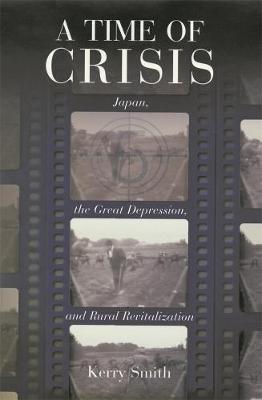Harvard East Asian Monographs
1 primary work
Book 191
This study of Japan's transformation by the economic crises of the 1930s focuses on efforts to overcome the effects of the Great Depression in rural areas, particularly the activities of local activists and policymakers in Tokyo. The author argues that these efforts changed the nation's thinking about the countryside, as well as Japan's conception of its economic and cultural relationship to the nation, in ways that have important implications for our understanding of both the war years and the postwar reconstruction. The reactions of inhabitants of rural areas to the depression shed new light on how average Japanese responded to the problems of modernization and how they re-created the countryside.
